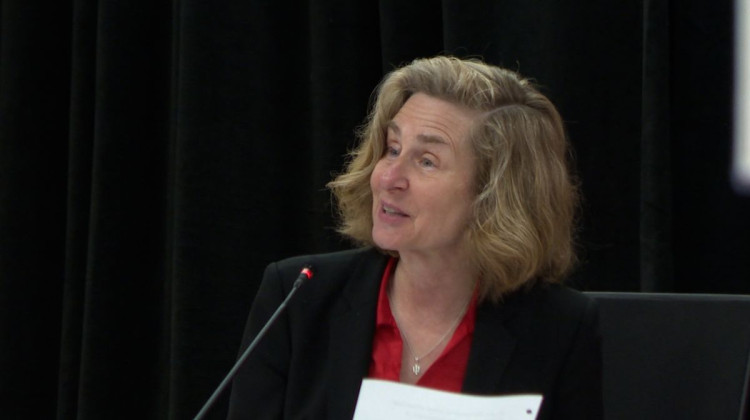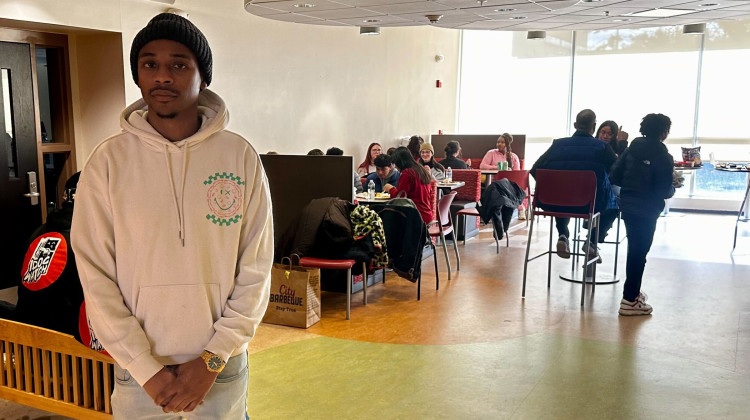
Families who participate will receive most of the state money their local public districts would have gotten to educate their children.
Sigmund/UnsplashPara leer esta historia en español, haga clic aquí
A new Indiana initiative aims to help parents of children with disabilities pay for therapies, tutoring and other services. But there’s a catch: It’s only available to families who leave the public school system — and the special education services it provides.
The Indiana Education Scholarship Account Program, which launches this year, is available to low- and middle-income parents of children with disabilities. Families who participate will receive most of the state money their local public districts would have gotten to educate their children, including the additional aid that pays for special education services.
Families can then use that money to pay for a range of educational and therapeutic costs at approved providers — including private school tuition. The program is overseen by the Indiana Treasurer's office.
Parents must apply by Aug. 5. Applications opened June 27, and so far, about 50 families have applied, according to Jackie Guglielmo, executive director of the program. More information and the program application are available on the Treasurer’s website.
"Through COVID and the recent pandemic, we've seen a lot of micro schools popping up and a lot of cohort programs of families getting together to provide education to their students,” Guglielmo said. “And I see the scholarship fund really being useful in helping them offset the cost of what can be some, some pricey educational services and therapies."
Indiana lawmakers approved the creation of education scholarship accounts in 2021, as part of a vast expansion of state funding for private schools. It’s the latest effort from the Republican-controlled legislature, which has steadily increased funding for vouchers that pay tuition for low- and middle-income families to send their children to participating private schools.
For families to be eligible, their income must be below 300 percent of the qualification for reduced price lunch — about $154,000 per year for a family of four. Their child must also be between 5 and 22 years old at the start of the school year, and the child must require special education services.
The amount families receive would vary widely based on the school district where they live and the severity of the student’s disability. Students are entitled to 90 percent of the regular funding their district would have received, which averaged over $6,300 this school year. On top of that, they would receive all of the state special education funding, which ranges from $500 per year for students with low needs to over $9,600 for the highest-need students.
Families who were previously receiving vouchers may choose to switch to the scholarship program because they could receive more money. And while vouchers can only be used for private school tuition, the scholarship accounts can be used to pay for services outside of a school setting.
The accounts might also appeal to families of children with disabilities who wish to home-school and use the aid to pay for tutoring, individual courses or other support.
Guglielmo said the program is a good fit for families who feel their current options are not meeting their child’s needs.
"I've gotten a lot of phone calls from families whose student for whatever reason is not able to access a brick-and mortar educational setting, whether that be [because of] a physical disability or being immunocompromised,” Guglielmo said. “This will give them the funds and the resources so that they can customize their child's education in a different setting."
Indiana’s education scholarship accounts promise to serve students who receive special education. But many parents of children with disabilities were critical of the program when lawmakers created it.
Critics say the accounts will not help their families because public schools are the best-equipped to serve students who need special education. And diverting public aid to middle-income families could ultimately undermine the public school system that the vast majority of children rely on for special education services.
Contact WFYI education reporter Dylan Peers McCoy at dmccoy@wfyi.org. Follow on Twitter: @dylanpmccoy.
 DONATE
DONATE






 Support WFYI. We can't do it without you.
Support WFYI. We can't do it without you.